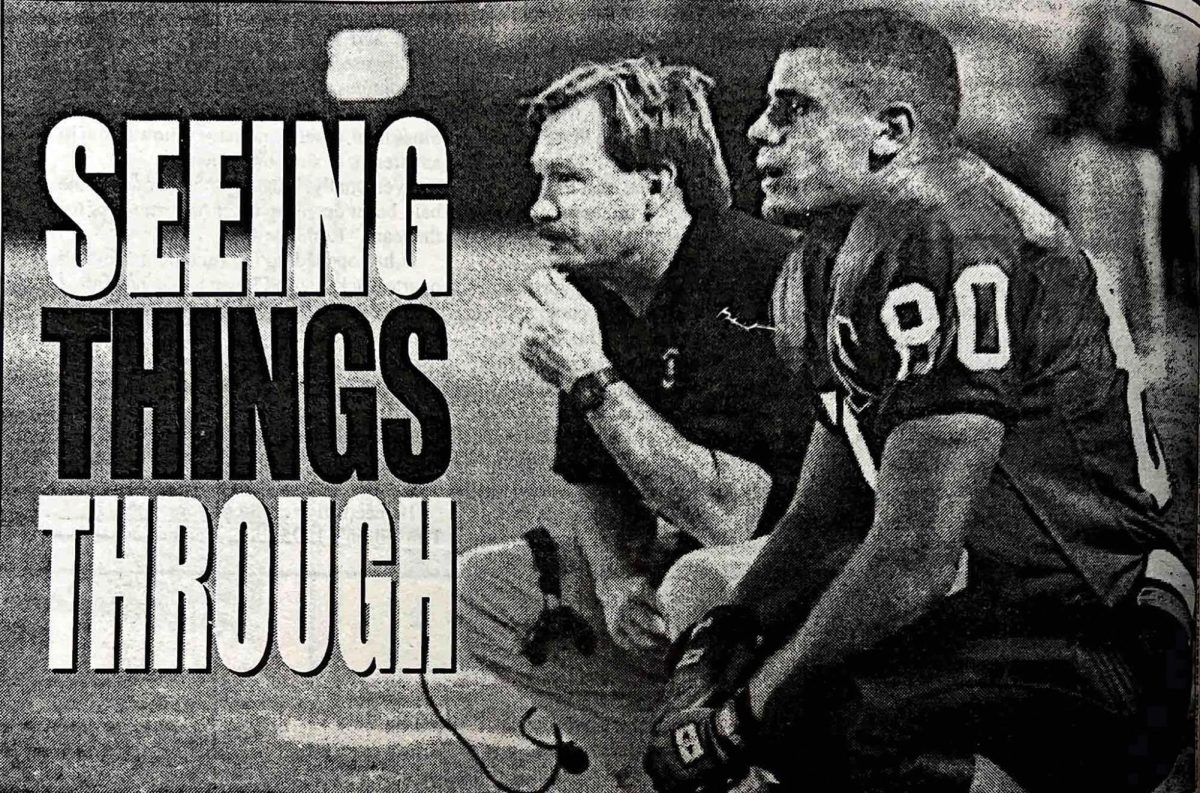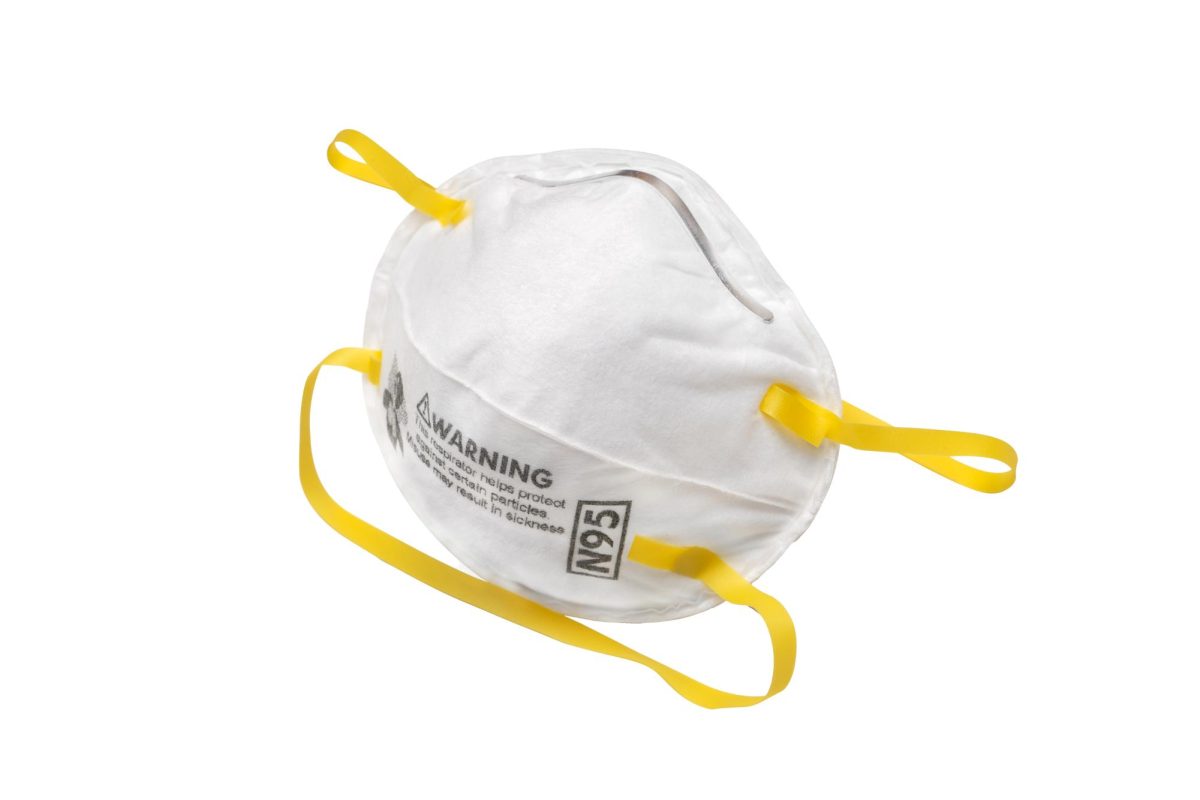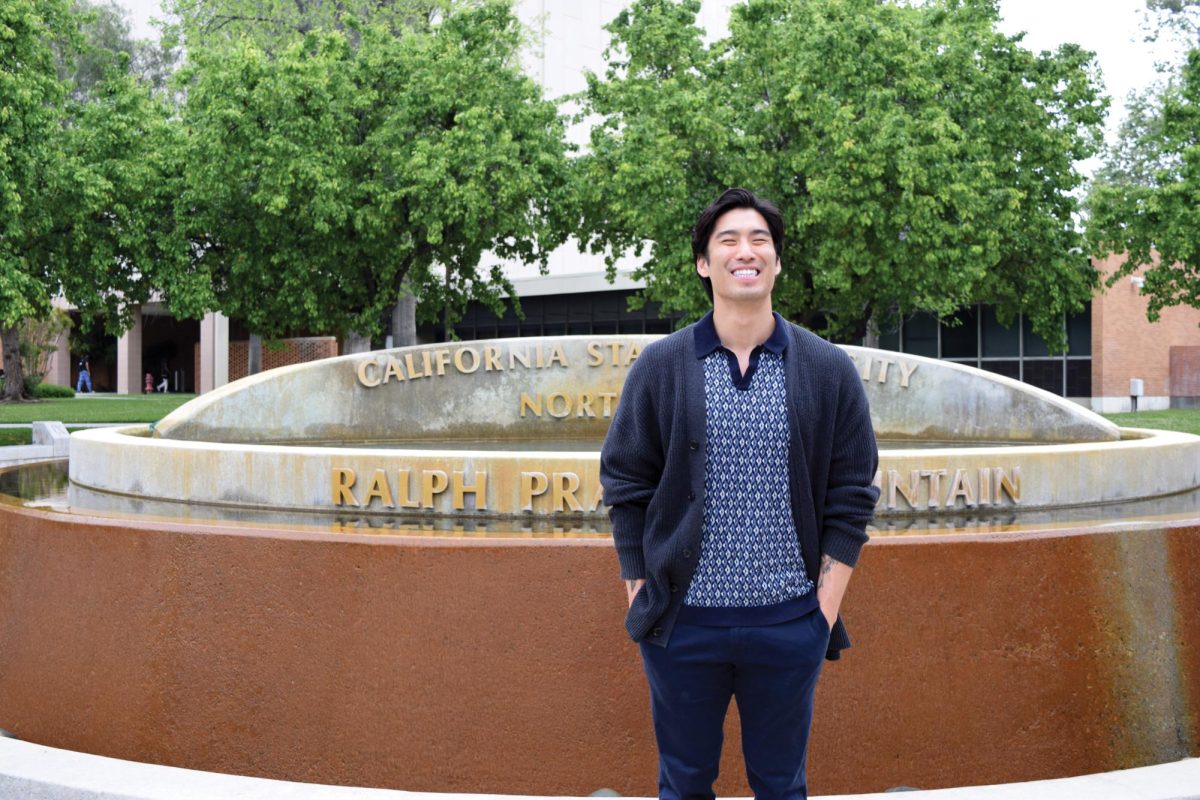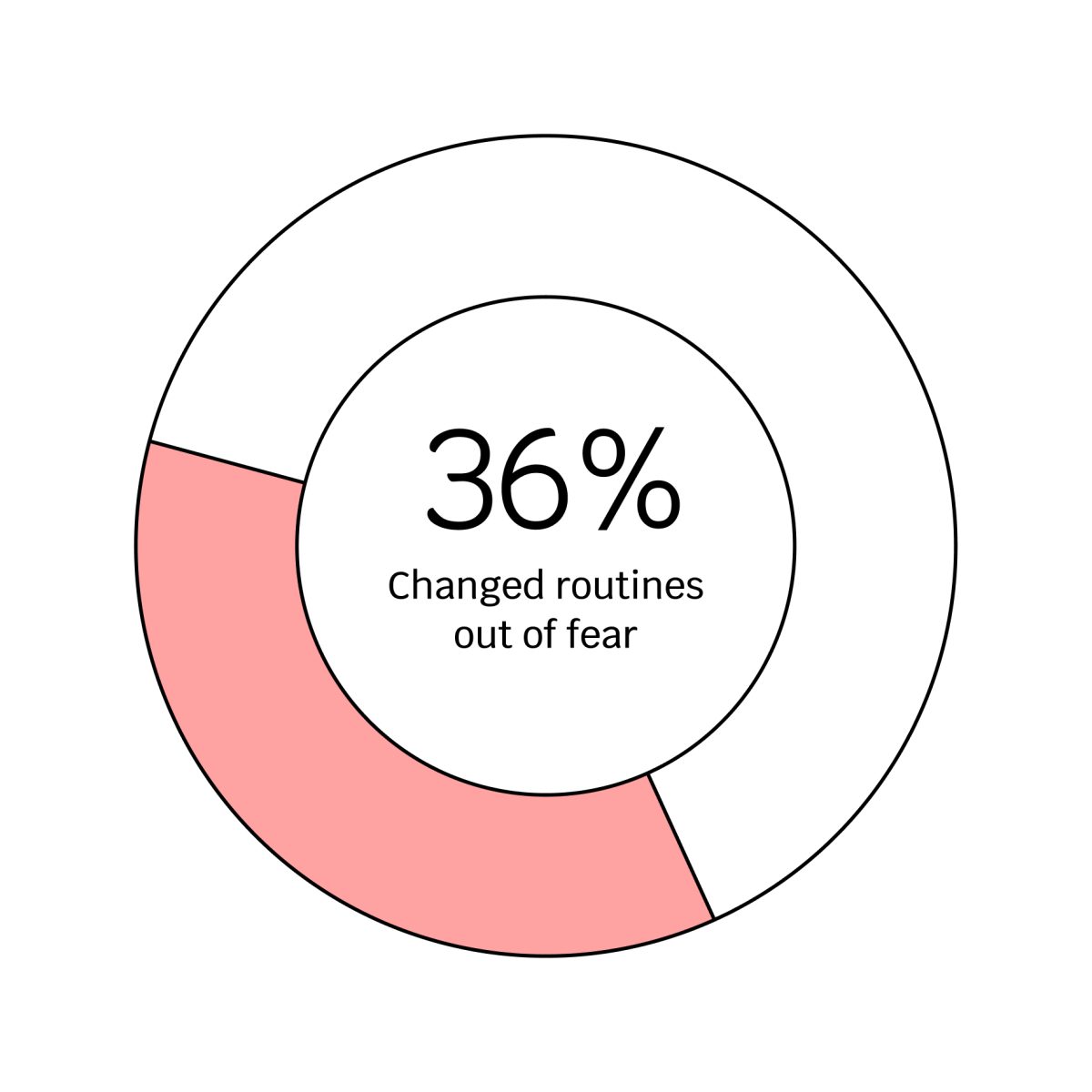Matadors football played its final game with a 50-43 loss to Portland State University on Saturday, Nov. 17, 2001. Just a little less than a week after the final game, then-President Jolene Koester announced the CSUN football program would be eliminated.
Athletic director Dick Dull recommended ending the 40-year-long CSUN football program to address budget concerns and compliance with Title IX.
Prior to the football team disbandment, there were numerous efforts to save the team, including a 1997 decision to eliminate four men’s athletic teams to keep the program afloat. CSUN administrators cut baseball, volleyball, soccer, and swimming to provide the necessary funding to keep the football program afloat.
Even with the athletic program prioritizing football, Koester stated the annual cost of $1.3 million for football was far too much for the department to handle. Along with the athletic department reporting $725,000 of losses in 2001, the institution found itself with the decision to cut the team.
CSUN competed in its last season as an independent team after spending the previous few years with the Big Sky Conference. In 2001, CSUN’s athletic program would join the Big West Conference, leaving football as the only sport without conference affiliation, while sports such as softball and baseball made the move.
Since the team was cut, students and supporters of the team have voiced their frustration. Students have wanted football to return to CSUN with fond memories of the program that once saw John Elway Sr. coach and quarterback Bruce Lemmerman play in. Lemmerman set records in his time with the team from 1965-1967, including the most yards passing, most touchdown passes, and the offensive record for most yards gained. He held these records until at least 1989, the last year University Archives noted. He went on to play in the NFL with the Atlanta Falcons for 11 games.
Lemmerman would not be the only Matador to play professionally, or to have a record-breaking season. Marcus Brady and receiver David Romines had success in the program’s final years. Brady, who played on the team from 1998 to 2001, was the starting quarterback for the team in all four years he was there. After his college career came to an end, Brady attempted to play in the NFL, but was unable to get on a roster.
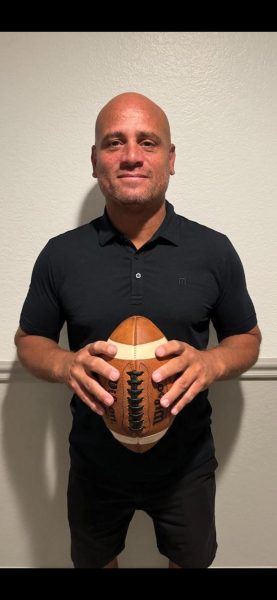
After a few stints in the Canadian Football League, Brady retired at 28 while maintaining involvement in football as a coach. Brady became the quarterback coach for the Indianapolis Colts in 2018 and their offensive coordinator in 2020.
As for Romines, he was named to the Associated Press All American second team in 1996. He was the only CSUN football player to be named to any of the three AP teams and holds the CSUN record for catches, yards, and touchdowns in a single season.
Romines, who was recruited in 1992, described the football team as the best times in his life.
“In a particular play, I came across the middle, caught the ball and my helmet popped off and stood up with the ball and heard the fans,” Romines said. “Having the support of the fans was awesome during this time.”
While at CSUN, Romines majored in sociology and minored in criminology, and stated that CSUN was a great choice to play right away.
“I had a scholarship opportunity to go to Cal Poly, but I chose to stay at Northridge; it was close to my family and friends, it just seemed like it was a great opportunity, and the possibility to start right away,” Romines said. “My biggest thing is I just wanted to play, and this gave me the opportunity.”
When he heard of the program dismantling, Romines expressed disappointment and sadness for the players and fans.
“I spent a lot of time at that field and it seemed it was going in the right direction, and all of a sudden it was over,” Romines said. “I was just sad for the program in general.”
Despite the program producing talent from its early days to its final years, the football team never saw much success of its own. Although the program won the California Collegiate Athletic Association in 1981, the Western Football Conference in 1983, and a shared WFC title in 1990, the team only won eight games in 1976 and 1986 while competing in Division II.
In its final years, CSUN faced off-the-field controversy and probation for recruitment violations that held the program back. In 1996, then-coach Dave Baldwin was suspended by the university for covering up the shooting of a football player after reporting that the player had an appendix operation earlier in the year. In 1999, coach Ron Ponciano was fired after an investigation concluded that he and the program committed substantial NCAA violations such as illegal recruiting, arranging air transportation for out-of-state recruits, and reimbursements of off-campus meals to recruits on unofficial visits. These violations led to the football program being banned from competing in the postseason by the NCAA.
In spite of the program’s up-and-down history, football at CSUN had its story cut short in 2001 due to a number of factors and concerns, and it is unclear if college football will ever return to the Valley.
